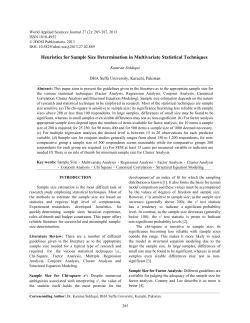
Knowledge lost as older workers leave workforce
Media Release February 19 Knowledge lost as older workers leave workforce According to a report released today, less than a quarter of the respondents to a survey on older workers say that their organisation takes routine steps to capture the knowledge of the workers as they transition out of the workforce. With the large number of baby boomers now leaving the workforce, the potential for permanent loss of intellectual property by Australian businesses is considerable. The HR Pulse study, by the Australian Human Resources Institute, reports on a survey sample of 1931 respondents conducted online in November and December last year. Other findings of the survey include: Respondents identified the main benefits of recruiting older workers as the experience they bring to the workplace, the professional knowledge they have acquired, and their reliability. A majority of respondents believe older workers are more loyal, reliable, aware and committed and have better levels of attendance than younger workers. They also believe, however, that younger workers have more energy, career ambition, technology skills, creativity, and are more physically capable than older workers. Retirement, redundancy, illness and injury are identified by respondents as the most common reasons why older workers leave the workplace. Around three quarters (77%) of respondents say line managers in their workplace are offered no training in ways to manage different generations. Slightly more than half the sample group (53%) say age-related bias seldom or never occurs in their workplace. Almost four out of ten respondents (38%) would classify a worker as old if the worker was between the ages of 50-55 (13%) or 56-60 (25%) Only 3% of respondents report that their workplace has ever considered menopause as a HR issue. Commenting on the report, AHRI chairman, Peter Wilson AM, said: “It is encouraging to see that only a small proportion (12%) of respondents believe that age-related bias is common in their workplace. However, with around a third (35%) of respondents acknowledging bias sometimes occurs, it appears to be an issue which requires a degree of attention.” The full report can be found here: http://www.ahri.com.au/__data/assets/pdf_file/0020/43517/AHRI-Pulse-Survey_Older-Workersmedia.pdf END For further information contact: Paul Begley, National Manager, Government & Media Relations, Australian Human Resources Institute 0402 897 884 paul.begley@ahri.com.au www.ahri.com.au
© Copyright 2025





















